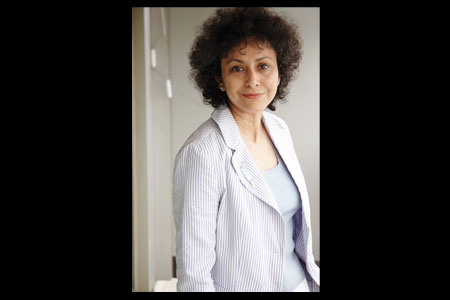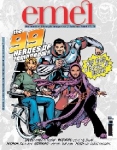
The Untold Truth: Poverty and Human Rights
Issue 61 October 2009
Review by Usaama Al-Azami
Every once in a while, a book appears that shakes us out of the indefensible complacency in which we, in the developed world, tend to live our lives. Irene Khan’s The Untold Truth is just such a book—a wakeup call for fortunate people around the world to recognise their responsibility towards their less fortunate fellow humans.
The Prophet taught us that none of us truly believes until we love for our brothers what we love for ourselves. The commentators on this hadith have not failed to point out that the word “brother” here refers to brothers and sisters in humanity, and not just our fellow Muslim.
Passionately presented and backed up by firsthand knowledge of the ground realities, Khan asserts that fighting poverty is about fighting deprivation, exclusion, insecurity and powerlessness. To deal with global poverty, she argues that we need to focus on the human rights abuses that cause poverty and keep people poor.
Trained at the same Harvard Law School that Obama attended, Irene Khan is the first Muslim Secretary General of the Amnesty International, and much of her book is based on anecdotes of her own personal experiences growing up in Bangladesh and engaging in humanitarian work around the world. The main argument of her book is that eradication of poverty needs to be recognised as a human right, as poverty is often the main reason for people’s human rights not being respected.
With the number of people living in poverty pushing the two billion mark, and a sixth of humanity living in the dismal conditions of slums with the constant threat of forced eviction hovering over their heads, this book is a timely reminder that the relative opulence in which we in ‘the global North’ live is the preserve of a shockingly small minority of humanity.
This book is also visually impressive, containing thirty five poignant photos from around that world that reminds one of the splendour of Yann Arthur-Bertrand’s visually stunning environmental documentary, HOME, which is available free on Youtube.
Finally this book, for me, raises one other point of interest—the idea of Islamic Human Rights. Islamic Human Rights discourse in the English language is still very much in its infancy. In Arabic, there’s been some discussion, with a very recent addition being a book by Shaykh Abdullah Ibn Bayyah published in 2007. While praising much of Western Human Rights discourse as being in line with Islamic principle, the shaykh points out that that the Universal Declaration of Human Rights assumes the universality of values that are in some cases, in fact, peculiar to the West. This non-universality is also the topic of the recently published The End of Certainty by Stephen Chan, who’s been contrasted with Francis Fukuyama. Chan argues that in the emerging multi-polar world order of the twenty first century, some Western ideas of universality will need to be revised. Chan’s book has been praised in many quarters, including by Tariq Ramadan.
Returning, in conclusion, to Irene Khan, her book is a must read for anyone with a conscience and the desire to uphold the rights of their fellow humans. The Qur’an says, “O you who believe, uphold justice as witnesses for God, even if it be against yourselves, or your parents, or your kindred, whether in relation to a rich man or a poor man” (5:135). Khan’s book could have been written as a response to this verse.
Bookmark this |
|
Add to DIGG |
|
Add to del.icio.us |
|
Stumble this |
|
Share on Facebook |
|
Share this |
|
Send to a Friend |
|
Link to this |
|
Printer Friendly |
|
Print in plain text |
|


Comments
0 Comments